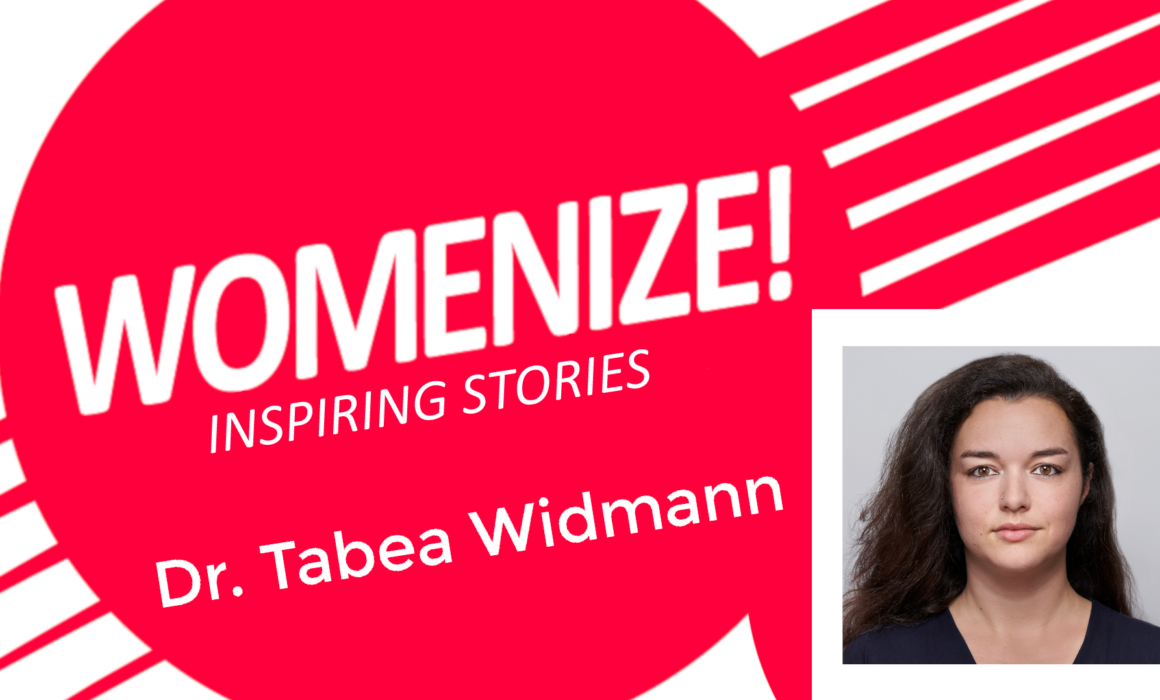Dr. Tabea Widmann – Womenize! – Inspiring Stories
Womenize! – Inspiring Stories is our weekly series featuring inspirational individuals from games and tech. For this edition we talked to Dr. Tabea Widmann, Project Lead “Let’s Remember” at Stiftung Digitale Spielekultur. She speaks about the intersection of digital games and memory culture, driven by curiosity about how traumatic pasts are remembered in today’s digital landscape, influencing her career path in shaping memory cultures and fostering diversity. Read more about Tabea in this interview:
Hi Tabea! What motivated your decision to pursue a doctoral degree focusing on digital games and memory culture, and how has that research influenced your career path and the projects you’re involved in today?
In one word: curiosity! To understand how we can remember traumatic pasts in a societal and political landscape where we create meaning more and more via digital media, has been one of the central questions during my studies. And while playing with the thought to pursue a PhD, the question popped into my head: memory cultures and digital games, is that a thing? And suddenly, I became aware of this very vibrant, exciting, and still growing field of research. It was fascinating to get in touch with the new ideas, to develop my own perspective and try to contribute a small facet with my own work.
This research has directly influenced my career path – since during my PhD, I got in contact with the Foundation for Digital Games Culture and its work at the touching points of academia, civil society and the creative gaming community. To me, researching in the field of memory and cultural studies is deeply connected to my own personal responsibility to shape (memory) cultures and contribute actively to a diverse and respectful society. The foundation in all its projects offers moments of transfer, of dialogue and thereby, gives impulses so that all participating fields can benefit from the exchange and develop positively. Therefore, applying there close to the end of my PhD was at the time the only logical choice – and luckily, it worked out!
Additionally, the research in memory cultures has also influenced my work indirectly – since it touches on so many aspects of today’s society. I would argue that it has made me become more aware of ethical dimensions of cultural and societal processes, of our own entanglement in power hierarchies and the dangers of purely economizing human life. So, these questions, perspectives, maybe even an uneasiness at times, accompany me during my research and work and have remained relevant for all my projects.
How have your previous roles and projects contributed to your professional growth and skill development, particularly in leadership and communication?
I think, here again, I benefited mostly from my curiosity and all the times, I rather said “yes, let’s try it out!” even though it was not clear right away where a decision might take me: Already during my studies, I worked as an intern for various institutions in the cultural sector, I managed a local election campaign and I did PR work for a youth orchestra and choir as a volunteer. Additionally, I used the opportunity to study abroad – and even though this might sound like a cliché, these experiences shaped me intensely and helped me grow. I believe, it was these many perspectives and different work environments that taught me to stay flexible, to find my way quickly into new structures and learn the necessary skills – and most of all: never to be too shy to ask for help!
Also, during important phases like choosing a PhD and then pursuing a career outside the core academic field, I had the privilege to learn from exceptional women. They encouraged me to follow my passions, let me benefit from their own knowledge and – most importantly – showed me that they trusted me and my skills. That helped me enormously to learn to trust myself. Knowing how precious these moments were for me, I seek to pass them on: to let others share in my experiences and show them, too, that I have trust in them. To me, these qualities lie at the core of leadership and successful communication.
In your opinion, what are the most exciting opportunities in the intersection of digital games and memory culture, and how do you see these shaping the future of interactive media and historical education?
I believe the most valuable qualities that games possess is that they show their players: what you do matters! To me, such a powerful call to action is direly needed in a world where I can experience my own impact very often only indirectly and abstractly. It is also needed in our current political climate where the majority appears silent and immobile. So, I believe one of the greatest chances for the intersection of games and memory cultures lies here: to stress this dimension of activity that is embedded in the conviction “Never again!” and to think already established memory practices closer together with practices from our games cultures.
Womenize! – Inspiring Stories Feature by Madeleine Egger

